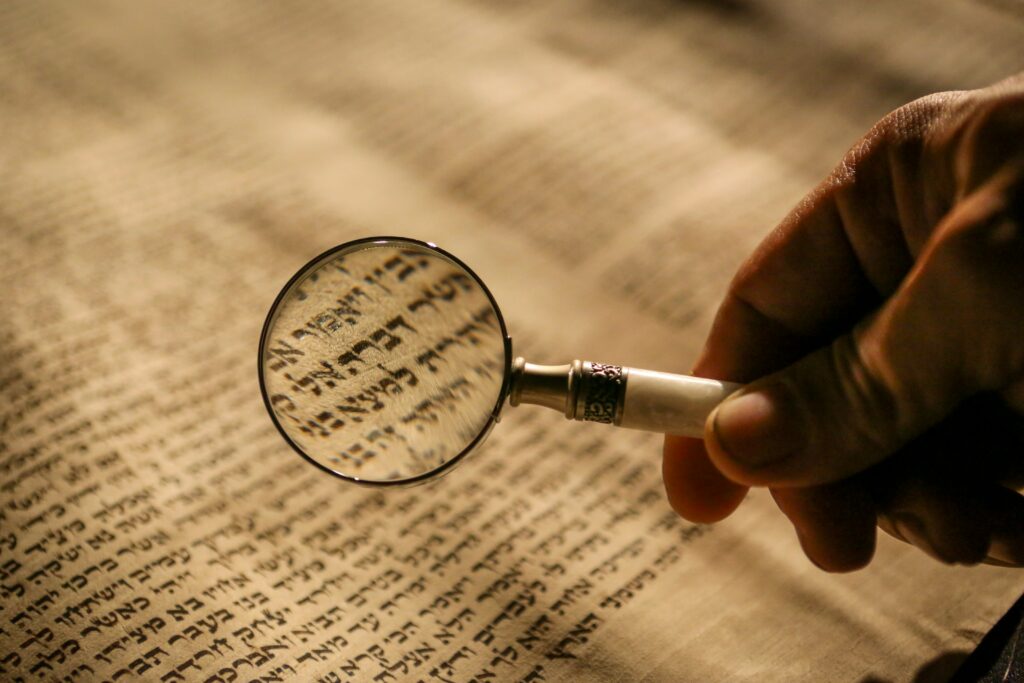
Introduction | Song 1, Part 1 | Song 1, Part 2 | Song 2, Part 1 | Song 2, Part 2 | Song 2, Part 3 | Song 3 | Song 4, Part 1 | Song 4, Part 2
The middle section of Song 4 (Is 53.4-6) answers the previous section by explaining why this special envoy from God is in such dire straits—despised and rejected by men (Is 53.3). It is not because of anything he has done to deserve such treatment. On the contrary, he is taking the penalty for our sins.
Sin has consequences. God has designed the universe in such a way as to encourage us to behave ourselves and thereby “live a quiet and peaceable life” (1Ti 2.2). (Yes, I know I’ve taken that phrase out of its Pastoral context, but I think I can make a case that it’s accurate in this context as well.)
If we’ll obey God’s commandments, the natural order of things will work in our favor. If we’ll love our neighbors, genuinely, they’re likely to treat us better than if we act abusively toward them. If we’ll be diligent in our work, our physical needs are more likely to be supplied. If we’ll give ourselves to wisdom by looking right before we step off a curb in London, we’ll be less likely to get clobbered by one of those double-decker buses.
But if we ignore God’s commandments, things turn out very differently. If we get drunk with wine, we’re likely to do things we’ll regret later, even if we don’t remember them—and there’s the deep ditch of alcoholism ready to take us off the highway permanently. If we choose a promiscuous lifestyle, there are sexually transmitted diseases waiting for us, as well as unwanted pregnancies and irretrievably broken hearts in the people who love us most.
So yes, sin has consequences. And since we all sin, we all face them. Here Isaiah names just two of them: griefs and sorrows (Is 53.4). And, he says, the Servant takes that weighty load upon himself.
And then the prophet returns to the incredulity of his earlier observations. In our judgment, he says, the Servant is doing no such thing; we figure he’s just in trouble with God for something. We’re like the disciples, who asked Jesus, “Who sinned, this man or his parents, that he was born blind?” (Jn 9.2).
Look at him! He must have done something!
But no. His wounding, his bruising, is the punishment for our transgressions, our impingement on forbidden ground, our ignoring the “No Trespassing” sign (Is 53.5).
He’ll say more about that in a moment, but for now he revisits the disbelief he demonstrated earlier. The beating he’s taking is going to deliver us! It’s going to bring us peace; it’s going to bring us healing. Not only do we not suffer the well-deserved consequences of our sin, but after this we’re going to be different people. We’re going to be healed of the sickness (Je 17.9) that got us into this mess in the first place.
It’s interesting to me that at the nadir of this Song, the place where the darkness is the deepest, Isaiah is still wonderstruck with the unimaginable good that the Servant is accomplishing. The light does indeed shine in darkness, and it can’t be overcome.
At the end of this section Isaiah revisits our transgressions and iniquities. How extensive is the problem? How much does the Servant have to deal with?
It’s as pervasive, as extensive, as it can possibly be. All of us have gone astray (Is 53.6); every one has turned to his own way; and now the burden he carries is the sin of us all.
Every sin. Every person. For all time.
What a burden.
And yet, what a deliverance! All of it is carried by the Servant. That means that all can face the possibility of being delivered.
Isaiah isn’t going to spell all that out for us; we need further revelation to shine light on what is here just an implication. But we do not lack that light.
Photo by Mick Haupt on Unsplash

Leave a reply. Keep it clean.